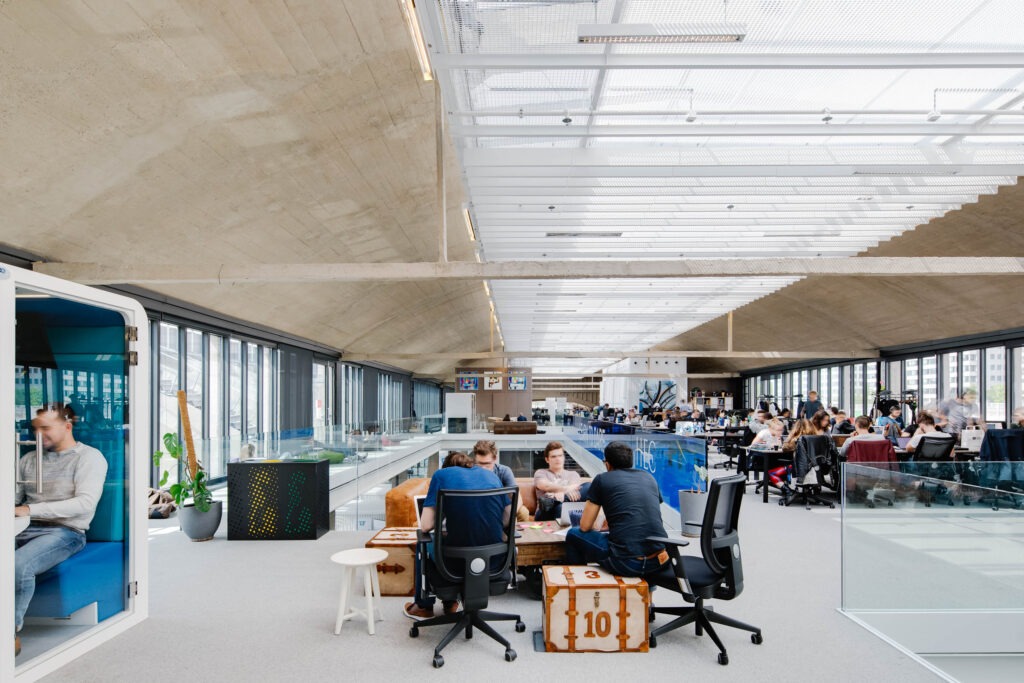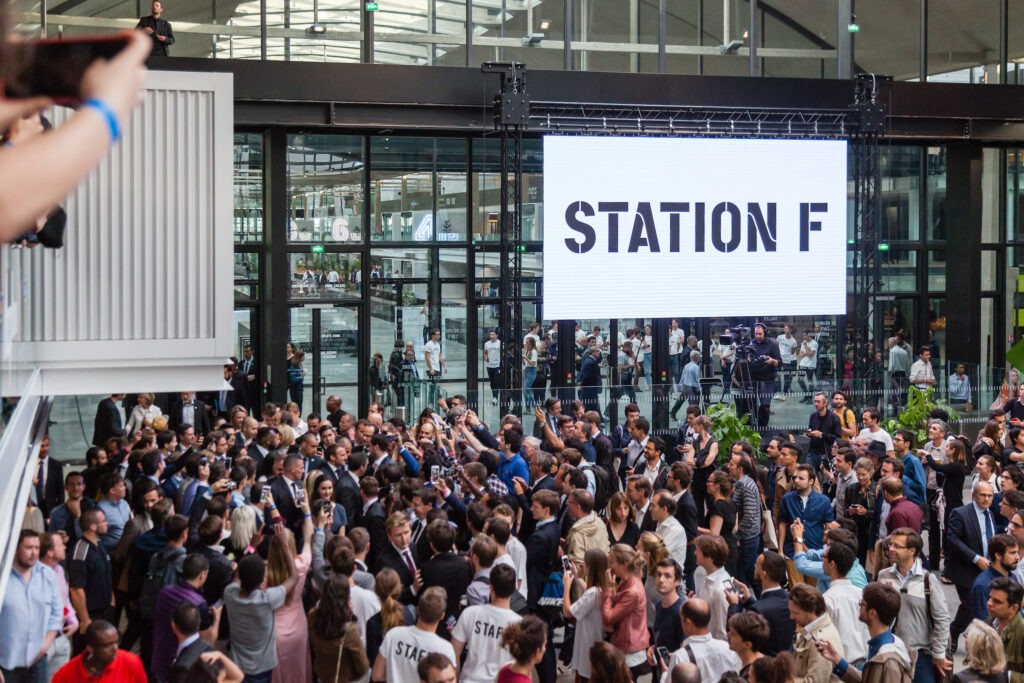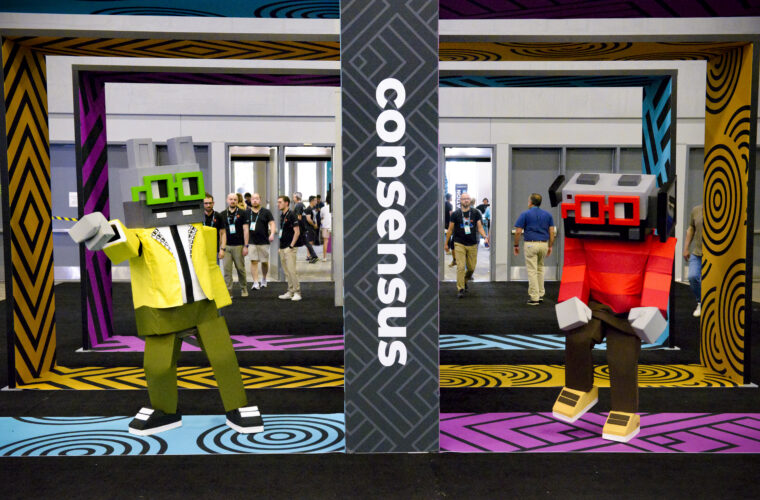Over its 51,000 square metre campus in the French capital, Station F is home to some 1200 companies. This makes the start-up incubator more ambitious in scale than any of its competition in Berlin, London, or even San Francisco.
It was must-see viewing for Egypt’s president, Abdel Fattah al-Sisi, during last week’s state visit with Emmanuel Macron. Political controversies aside, this gives some sense of the role the hub plays in the mind of the business-focused French executive.
Most impressively of all — four years ago, Station F did not exist.
Building an institution
It has been described as a university for start-ups, and as the physical embodiment of French tech ambition: “The place that gives entrepreneurs the hope to try,” according to Jean de La Rocheblochard, the managing partner of a closely associated investment fund.
Xavier Niel, Station F’s creator, is a French technology mogul best known for being the majority owner of France’s Iliad and its telecom brand Free. So far, the Station F odyssey has cost the businessman around €300 million, with partial support from state money earmarked for digital projects.


Instrumental to the incubator’s inception and ongoing operations is Station F’s director, Roxanne Varza, previously of Tech Crunch. The American-born writer was brought on to develop the project from the ground up by the organisation’s billionaire owner.
On Niel’s enigmatic request, Varza spent her first days onboard visiting different incubators around the world, noting their qualities and issues, what worked, what could be improved upon — and reporting back so that the vision in Paris could be brought to life.
Over the last few years, one of Station F’s founding values has remained constant. While other notions have evolved, or their own success has made them redundant, the primacy of meeting the needs of start-ups has never faltered.
“All of our decisions are driven by what does a start-up need, what makes a start-up happy,” Varza explained.
Around 100 venture capital funds make up an investment community that sits fixed in orbit around the incubator campus, keeping a close eye on the most alluring investment opportunities. VC investment in French start-ups has tripled over the past five years, and in 2019 France overtook Germany in total private start-up investment: many credit Station F with an important role in this shift.
With its mandate validated, Station F is looking at leading some trends on what entrepreneurship looks like in the future.
“Because we’re working with so many young companies, we feel like we can, kind of, set the tone,” Varza said, describing how sustainability and diversity have become important considerations at the campus.
“What we actually want to see from companies that come to Station F […] [is] how do you contribute to diversity and sustainability,” the director said, adding that it would be up to companies to decide how they demonstrate this.
Fighters, Founders, and big-name players
Station F currently boasts more than 30 incubator programmes, each specialising in specific verticals and backed by the likes of Facebook, Microsoft, Ubisoft, and Thales. There are also programmes from some of France’s Grandes Ecoles, such as the world-famous business schools HEC and INSEAD, while Google runs an onsite mentoring office through which founders can learn about its services.
Two major in-house operations exist:
Founders is a programme for entrepreneurs with big ambitions. Start-ups apply through Station F’s selection board to become residents, with enrolment costing €205 per month per desk.
Given the location, the environment, and the host of amenities on offer, this price is extremely reasonable. Programmes in other co-working spaces can cost as much as double that figure.
While Founders is a no nonsense, run-your-own-ship arrangement, without mentorship or coaching — it is fast becoming a hotbed of European and international start-up activity, with around 200 companies on the books.
One example, BigBlue, an e-commerce logistics enabler and Founders alumnus, recently raised €3 million in a seed round led by European fund Samaipata.

The Fighters programme sets a different agenda.
Fighters aims to provide free access to underprivileged founders, so long as they have a proof of concept for their early-stage start-up and they can commit full-time to a one-year project.
This programme is an order of magnitude smaller than Founders. This ensures that enrolled companies get the additional support they need, aiming to bring them to an equal footing with their MBA-touting, well-networked peers. The programme offers tailored mentoring in all aspects of entrepreneurship.
Station F residents also benefit from close proximity with French Tech Central, a unique onsite grouping of 30 public research and regulatory organisations. The aim of the body is to bring the start-up sector and public agencies face-to-face so that both can benefit from one another’s information and ideas.
The campus now also includes nearby shared living accommodation for up to 600 entrepreneurs. The idea of Flatmates was to make the move to Paris for international start-ups, or simply homegrown companies new to the capital, that little bit less daunting.


Unicorn hopefuls
For the second year now, Station F has released a list of its top 40 start-ups, companies deemed most likely to be among Europe’s next unicorns — “billion-dollar companies.”
The programme is both a means of helping the strongest companies to achieve their potential, and a testament to Station F’s ongoing success.
Each of the companies was selected based on growth, traction, first achievements, and planned projects for the coming months — enjoying additional exposure to potential investors as a result.
“The Future 40 companies of this year are proof that startups are not only building gadgets, but that they are working to make our daily lives easier,” said Marwan Elfitesse, Station F’s head of start-up programmes.
The companies are all early-stage, having raised less than €1 million, the spokesperson explained, adding that everyone should keep an eye on their progress in the near future.



